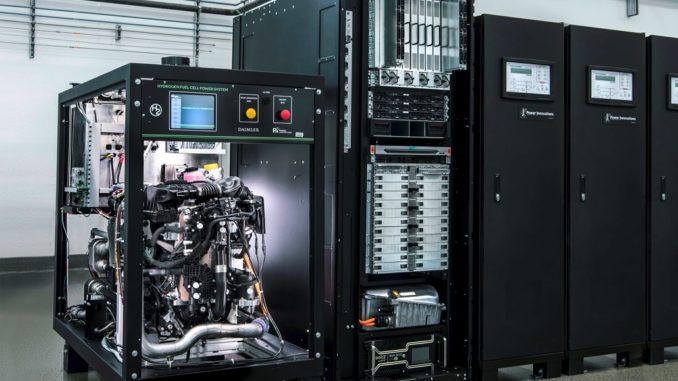
Technology collaboration on non-transportation fuel cell systems
Daimler partners with computing experts to transfer automotive fuel cell technology to carbon-free energy supply systems
Source: Daimler AG
Stuttgart, Germany and Sunnyvale, USA. 10th November 2017. With the world premiere of pre-production models of the Mercedes-Benz GLC F-CELL at this year’s IAA in Frankfurt, Daimler presented its latest generation fuel cell technology: 30 percent smaller, 40 percent more power and with a size that now fits into the engine compartment of Mercedes-Benz passenger vehicles. These new innovative systems are more flexible than ever before, and are now being deployed in the non-transportation sector as well. Daimler with its one hundred percent owned subsidiary NuCellSys and together with Mercedes-Benz Research and Development North America (MBRDNA) and Daimler

Innovations Lab1886 is now expanding the use case of the innovative automotive fuel cell technology. Collaborating with Hewlett Packard Enterprise (HPE), Power Innovations (PI) and the National Renewable Energy Laboratory (NREL), Daimler is utilizing its automotive fuel cell systems in stationary power systems to demonstrate a sustainable and independent energy supply for data center and to accelerate the transition to renewable energy generation and supply.
“The maturity of automotive fuel cell systems is unquestioned today. They are ready for everyday use and constitute a viable option for the transportation sector. However, the opportunities for hydrogen beyond the mobility sector – energy, industrial and residential sectors – are versatile and require the development of new strategies. Economies of scale and therefore modularization are important challenges”, says Prof. Dr. Christian Mohrdieck, Fuel Cell Director at Daimler AG and CEO of Daimler’s subsidiary NuCellSys.
Fuel cells as an ideal choice for micro-grids within data centers
Data centers are some of the largest consumers of power in the new economy, and the growth rate of this power consumption is significant as well. U.S. data centers are projected to consume an estimated 140 billion kilowatt-hours of electricity per year by 2020, equivalent to the annual output of about 50 power plants, emitting nearly 100 million metric tons of carbon pollution per year, according to a study by the Natural Resources Defense Council (NRDC). The increasing power requirements must be balanced with the provisioning of sustainable energy supplies

that meet and exceed environmental standards. Fuel cells are a very promising technology in this field. No other power technology can offer the high reliability, unlimited scalability, and renewable energy benefits without costly utility dependency like the fuel cell can. With a constant supply of hydrogen, the fuel cell will keep supplying power. The technology relies on an electrochemical reaction like a battery, but, unlike a battery, fuel cells have a limitless capability. The high reliability, low emission rates, low noise levels and dramatically reduced footprint make fuel cells the ideal choice for micro-grids within data centers. Those technical benefits combined with the unlimited scalability, lowered maintenance, and cost efficiency can solve the massive energy storage requirements for today’s data centers.
“Rapidly escalating power demands are putting pressure on traditional power delivery solutions. The use of Daimler fuel cells for continuous and back-up power solutions will allow us to explore new, sustainable, cost-effective and rapid methods to power our customers’ data centers”, said Bill Mannel, VP & GM HPC and AI, Hewlett Packard Enterprise.
HPE is working with the collaboration partners to integrate fuel cell power systems with its current IT infrastructure solutions, including the HPE Apollo 6000 Gen10, HPE SGI 8600, and other HPE platforms.

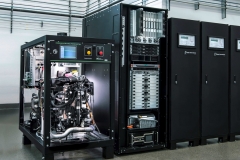
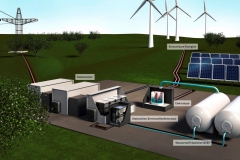
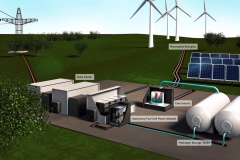

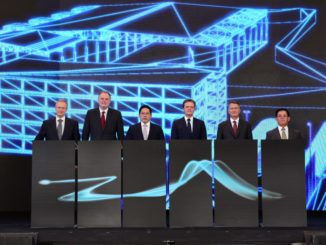

Be the first to comment